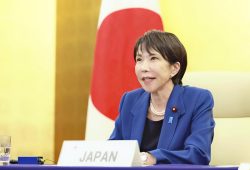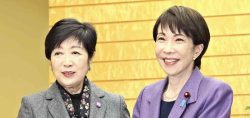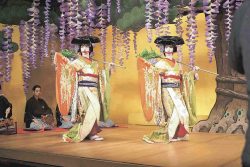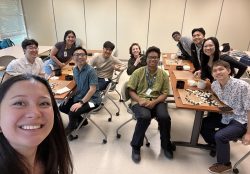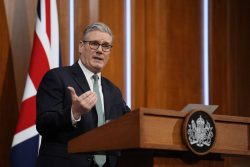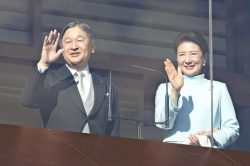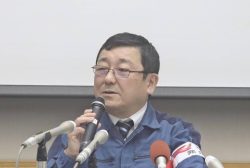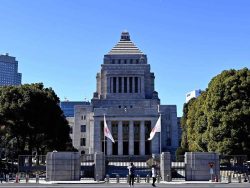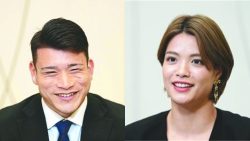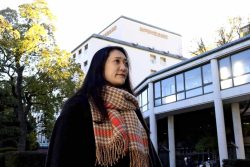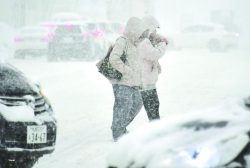NATO’s Stoltenberg Calls for Boosting Ties in Asia; Secretary General Cites China as ‘Challenge to Values’

NATO Secretary General Jens Stoltenberg speaks during an interview with The Yomiuri Shimbun at NATO headquarters in Brussels on June 27.
15:32 JST, July 3, 2024
BRUSSELS — The North Atlantic Treaty Organization is seeking to strengthen partnerships with Japan, South Korea, Australia and New Zealand as China has become “a challenge to our values,” NATO Secretary General Jens Stoltenberg said in a recent interview with The Yomiuri Shimbun.
Leaders of the NATO member states will meet in Washington from Tuesday. The leaders of the four nations in the Asia-Pacific region are also invited to the upcoming summit meeting. In light of the threat posed by China, Stoltenberg said that NATO will seek to agree with the four countries to strengthen cooperation on arms control, technological development and countermeasures against cyber-attacks.
- According to the secretary general, three key agenda items for discussion at the gathering are as follows:
- • The issues faced by Ukraine amid Russia’s aggression
- • NATO’s deterrence capabilities and defense measures
- • Strengthening partnerships with the four Asia-Pacific countries — Japan, South Korea, Australia and New Zealand.
Since Russia launched its aggression against Ukraine, NATO has deepened its ties with the four countries, out of vigilance toward authoritarian states.
“We don’t regard China as an adversary, but at the same time, what we see is that China is a challenge to our values, to our interests, to our security,” Stoltenberg, said, adding that sources of concern include how China is “threatening neighbors, threatening Taiwan, but also the behavior in the South China Sea.”
He pointed out that China’s advanced technologies and exports of electronic devices are propping up Russian production of drones and missiles to be used in the ongoing aggression against Ukraine.
“China is fueling the biggest war in Europe since the Second World War, and therefore we need to take China seriously,” he said.
To further tighten pressure on Beijing and stabilize the Asian region, he touched upon cooperation with the four countries, stressing the importance of “ensuring that we fill that partnership with content,” indicating NATO’s intention to deepen concrete cooperative measures.
However, Stoltenberg was cautious about taking any concrete action in the event of a contingency in and around Taiwan. “NATO is an alliance of North America and Europe. And we will remain an alliance of North America and Europe,” he said.
Last year, there was a plan for NATO to open a liaison office in Tokyo, but he said, “I don’t expect any decisions on a NATO office in Tokyo at this summit.” His remarks indicated that he does not want to excessively provoke China.
Regarding the ongoing support measures for Ukraine, which have been independently decided by each NATO member state, he said, “Some fair burden-sharing among allies that are providing support will make it easier to sustain the support for the long haul,” expressing his desire for a review of the current mechanism to be decided on at the summit.
Russia has signaled that it may ease its conditions for the use of nuclear weapons.
But Stoltenberg said, “We monitor closely, but we don’t see any imminent threat against any NATO ally,” adding, “We haven’t seen any changes in Russia’s nuclear posture that requires any changes in ours.”
U.S. fighter jets have been provided in Europe as a measure to maintain NATO’s nuclear deterrence capabilities. Asked about replacing F-16s with F-35s, he said, “It’s an ongoing process.”
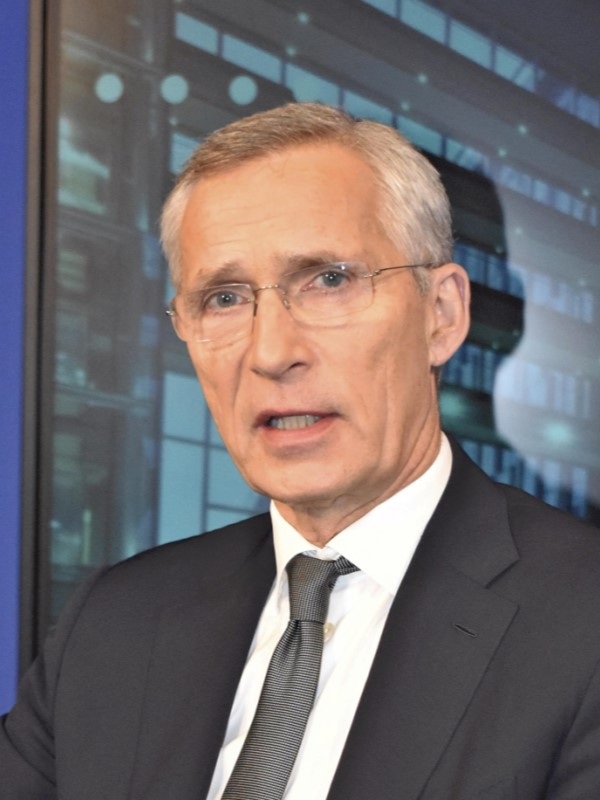
Jens Stoltenberg
Born in Norway, Stoltenberg, 65, served twice as the country’s prime minister from 2000 to 2001 and from 2005 to 2013. He assumed his current post about six months after Russia announced its annexation of the Crimean Peninsula in southern Ukraine in March 2014. He was scheduled to leave office in 2022, but his term as secretary general was extended due to Russia’s aggression against Ukraine. He is known for his ability to coordinate and rarely makes a gaffe.
Top Articles in World
-

China Confirmed to Be Operating Drilling Vessel Near Japan-China Median Line
-

Chinese Foreign Ministry Criticizes Japan’s Largest Ever Defense Budget in Draft Budget for Fiscal 2026
-

Japan, Qatar Ministers Agree on Need for Stable Energy Supplies; Motegi, Qatari Prime Minister Al-Thani Affirm Commitment to Cooperation
-

China Eyes Rare Earth Foothold in Malaysia to Maintain Dominance, Counter Japan, U.S.
-
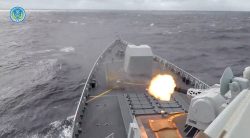
China Appears to Warn Japan, U.S. with Drills Around Taiwan
JN ACCESS RANKING
-

Tokyo Zoo Wolf Believed to Have Used Vegetation Growing on Wall to Climb, Escape; Animal Living Happily after Recapture
-

Univ. in Japan, Tokyo-Based Startup to Develop Satellite for Disaster Prevention Measures, Bears
-

JAL, ANA Cancel Flights During 3-day Holiday Weekend due to Blizzard
-

‘Fiercest, Most Damaging Invasive Weed’ Spreading in Rivers, Lakes in Japan, Alligator Weed Found in Numerous Locations
-

Snow Expected in Tokyo, Neighboring Prefectures from Jan. 2 Afternoon to Jan. 3; 5-Centimeter Snow Fall Expected in Hakone, Tama, and Chichibu Areas


